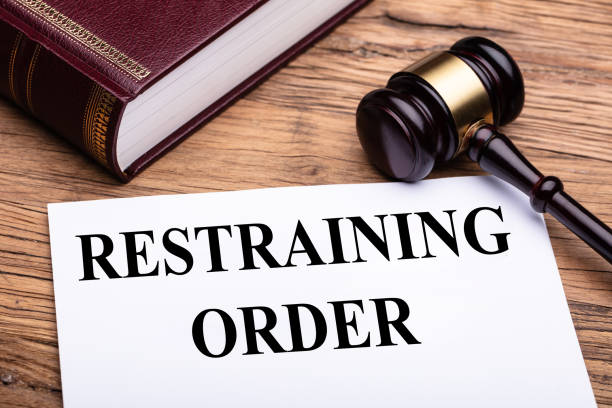


What is a Connecticut Protective / Restraining Order?
In Connecticut, there are several kinds of restraining orders that can be issued by either the criminal court or the civil court. Also known as protective orders in Connecticut criminal courts, they place restrictions on an individual’s access to another person. Violating these orders, regardless of which court put them in place, is a separate felony charge.
How Can I Avoid Getting a Restraining Order in Connecticut?
While no protective order is convenient, it is most important to work to prevent the court from ordering a full no contact order. I write about this all the time: how it’s 5 against 1 at your Connecticut domestic violence arraignment. The court looks to the prosecutor, bail commissioner and family relations for guidance. When you are arrested for family violence, you meet with family relations and they give a recommendation to the court of what kind of protective order should be implemented.
Do I Need Help with My Family Relations Meeting?
A top Connecticut domestic violence attorney can help you prepare for this meeting and help you to show family relations, and in turn the court, why you should not be subject to a full no contact order.
When Can the Connecticut Criminal Court Issue Protective Orders?
As the best Connecticut domestic violence lawyers know, the criminal courts issue protective orders in all domestic violence cases under Connecticut General Statutes (C.G.S.) § 46b-38c(e). Domestic violence cases are crimes between family or household members as defined by C.G.S. § 46b-38a.
What Kind of Charges Expose Me to a Connecticut Criminal Restraining Order?
The criminal courts can also issue protective orders in non-domestic cases of stalking, harassment, sexual assault, or risk of injury to a minor under C.G.S. § 54-1k. In these cases, the victim and the perpetrator do not need to have any familial or household relationship.
Both of these orders can be put in place at arraignment or at any time throughout the case. They typically last through the end of the case. However, you can move the court to modify the conditions if you feel as though they are too restrictive.
What are the Kinds of Criminal Protective Orders?
There are three “levels” of Connecticut protective and restraining orders. The least restrictive is a partial protective order. This order generally requires you not to harass, assault, or threaten the protected individual, but does not bar communication or physical contact. In the middle is the “residential stay away” protective order. This covers the same as the partial, but in addition you are not allowed to go to the person’s home, even if it is your home as well. At the top, the most restrictive kind of protective order is the “full no contact” order. This prevents you from having any contact whatsoever with the protected party.
Contact a Connecticut Restraining / Protective Order Attorney Today
If you have been arrested for domestic violence, working quick to gather evidence and solidify your defense can help you out tremendously in the long term. Protective orders can displace you from your home and your family, inconveniencing your life for months to come. To learn more about how a Connecticut protective order lawyer can help you, check out our certified reviews on avvo.com and call Mark Sherman Law today at (203) 358-4700.